As part of Banned Books Week 2021, which ran this year from September 26th through October 2nd, the First Amendment Museum (FAM) considered examples of young adult books that have been banned throughout the United States. This coincided with our September 27th virtual program for teenagers, “You Can’t Read That! Banned Books and Censorship for Teens.”
It is through the controversies and debates surrounding these books that the nature of censorship itself, especially in a country with such strong protections on the freedom of expression through the First Amendment, will be explored.
Learn more about how books get banned in the United States.
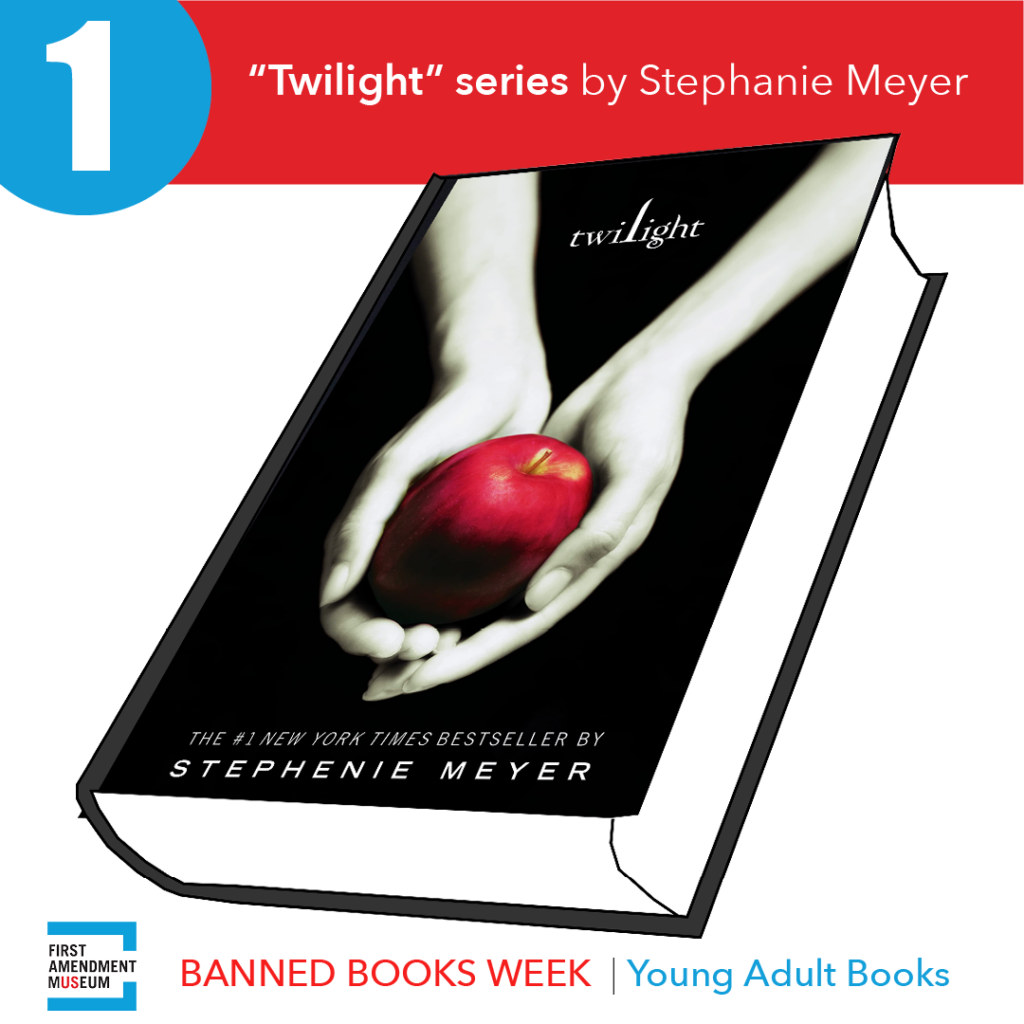
Twilight book series by Stephenie Meyer
Anybody who came of age during the late 2000s will remember the Twilight craze that swept the world. However, you may be surprised to learn that the Twilight series has been banned or challenged since publication of the eponymous first novel in 2005. The most famous example of banning the series occurred in September 2008, when the Twilight books were temporarily removed from middle school libraries in the Capistrano Unified School District in California for “containing subject matter which is deemed too mature for our middle school-level students.” In an odd turn of events, the district’s instructional materials specialist, the one who had initially banned the series, quickly changed her mind, revoking her previous decision for unknown reasons, and later asked district librarians to “disregard” her initial banned book email.
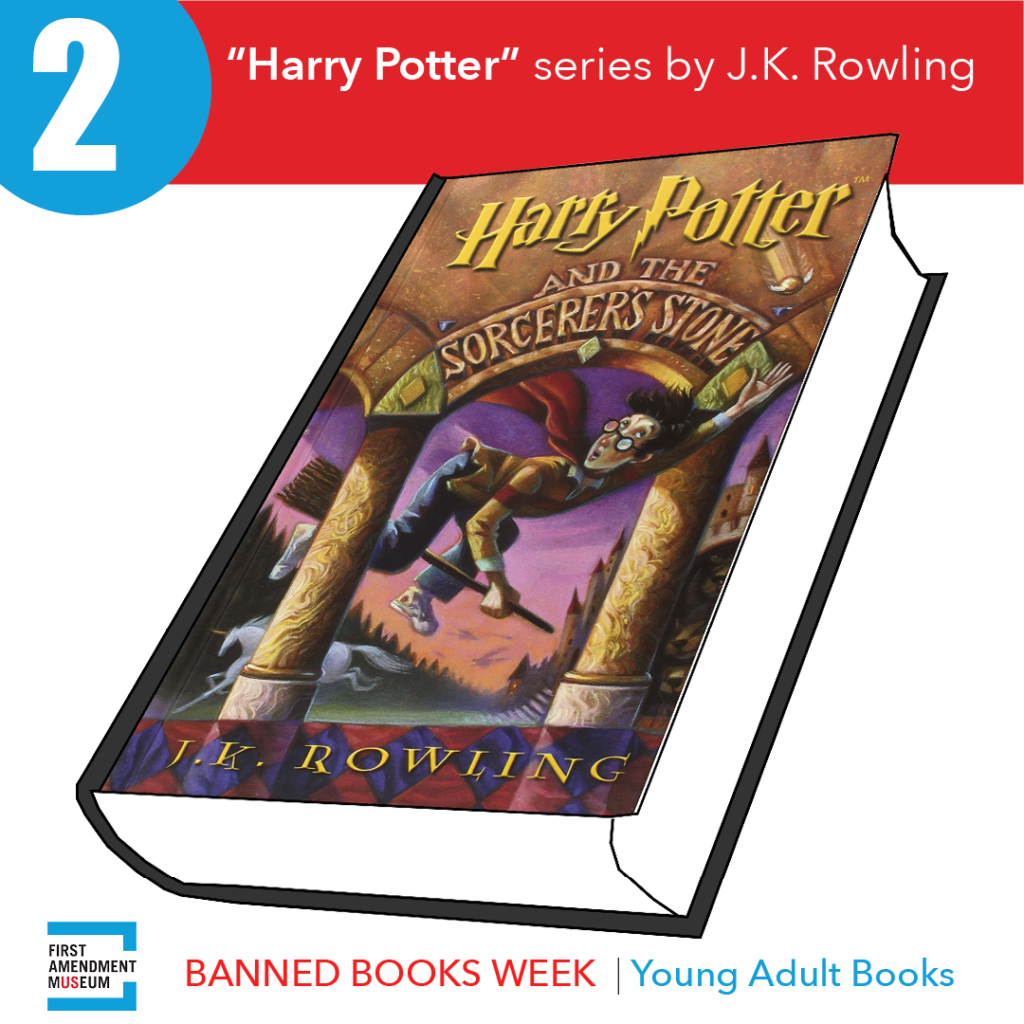
Harry Potter series by JK Rowling
The Harry Potter series are some of the most banned books of all time and the American Library Association lists them as the most challenged book series of the twenty-first century. The series is predominately challenged for its portrayal of witchcraft and its recurrent dark themes, including death. As late as 2019, 20 years after its original publication in 1999, it remained the ninth most “challenged” book of that year, also according to the American Library Association.
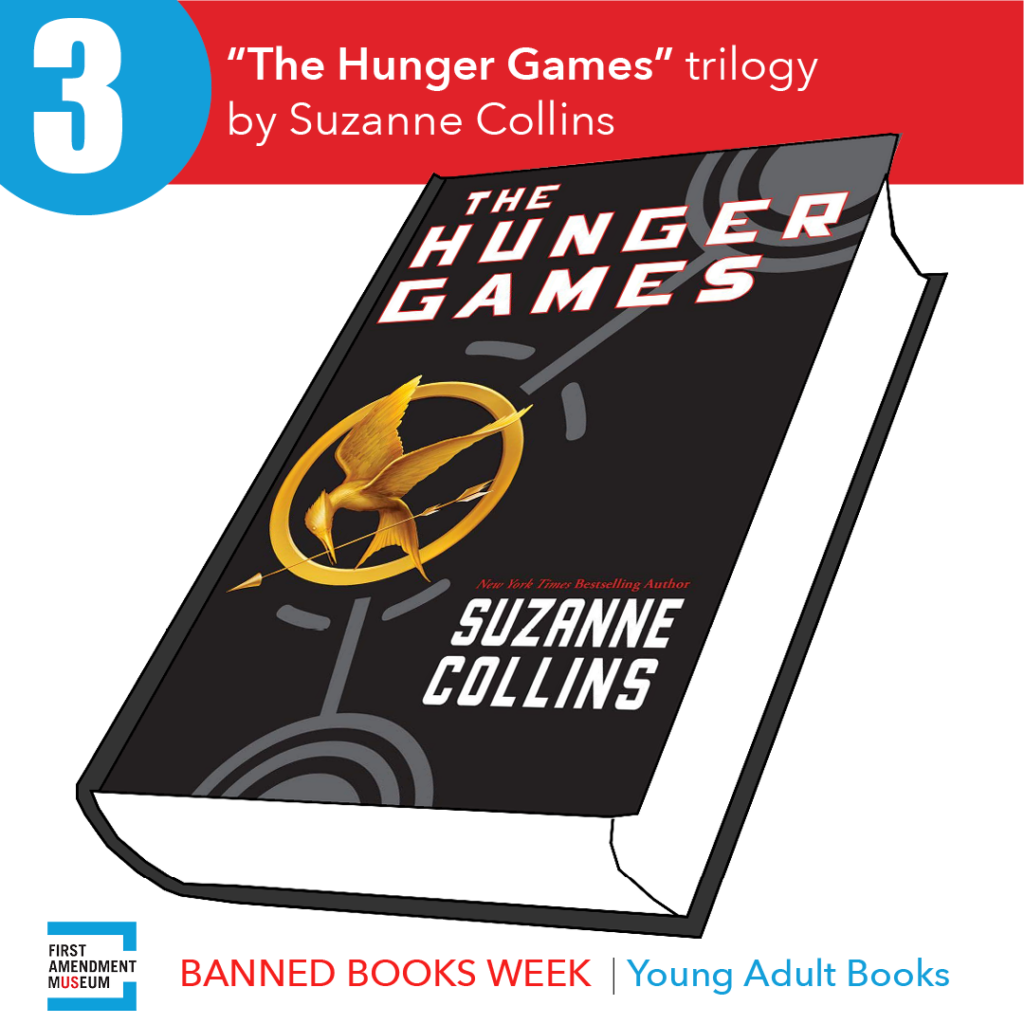
The Hunger Games trilogy by Suzanne Collins
The teen dystopian novel fad of the early 2010s did not escape the wrath of censorship. The first book of the Hunger Games trilogy, originally published in 2008, began “catching fire” for its portrayal of young adult violence which resulted in it being the fifth most challenged book of 2010, according to the American Library Association. The trilogy is set in a dystopian future in which children are made to fight to the death on reality television. Suzanne Collins, the author of the Hunger Games, was inspired when she watched a reality game show right after footage of the Iraq war. Interestingly, the series has also been a source of controversy in Thailand. A three-finger salute, used by characters in the novel as a form of defiance, was adopted by Thailand’s anti-government protestors resulting in the salute being banned by the Thai military. One of the film adaptations of the Hunger Games was also banned in Thailand.
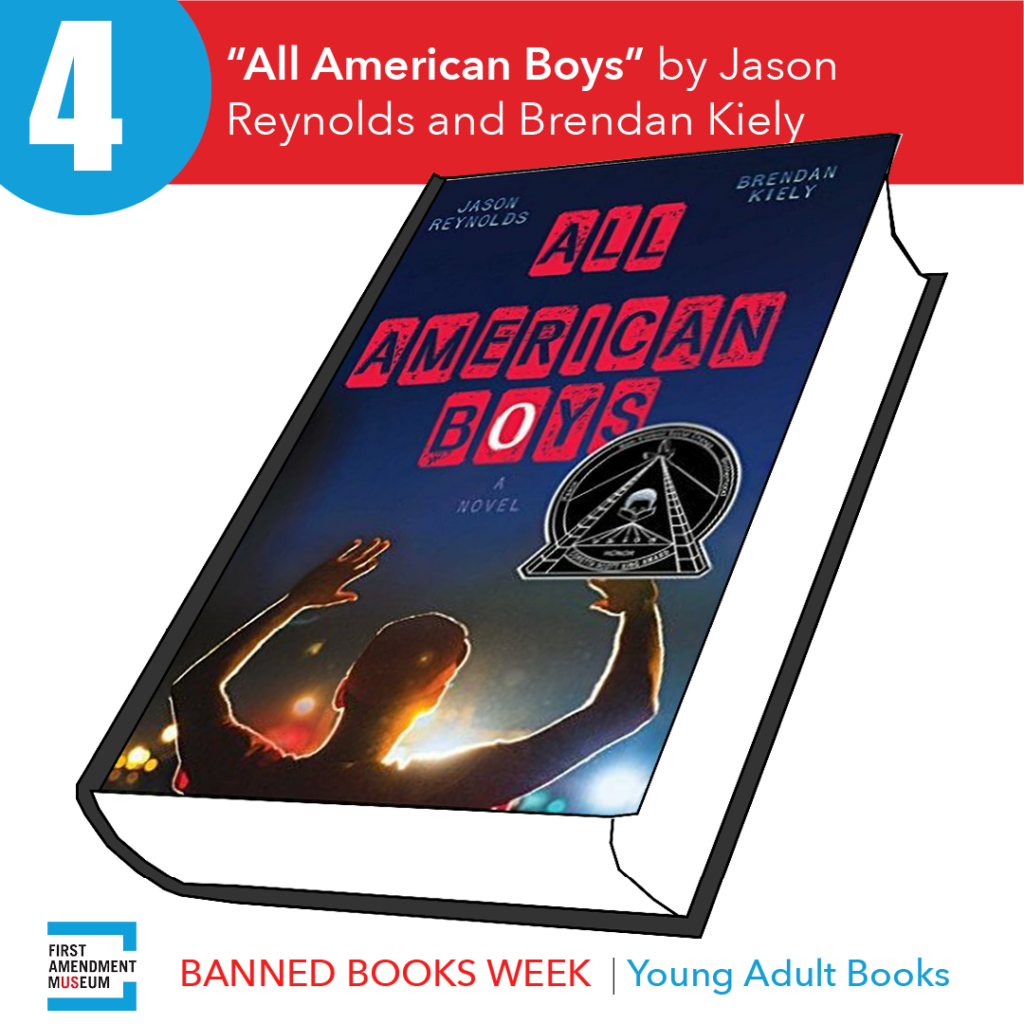
All American Boys by Jason Reynolds and Brendan Kiely
The third most banned book of 2020, according to the American Library Association, was the young adult novel All American Boys. The book is the story of two teenage boys, Rashad Butler and Quinn Collins, as they encounter racism and police brutality while coming of age in modern America. The most dramatic challenge to All American Boys occurred in Mt. Pleasant, South Carolina, where the law enforcement union argued for the book to be banned from a local high school. The school’s librarian fought for the book to continue being taught and the National Coalition Against Censorship wrote to the principal urging the district not to remove the book from the high school’s curriculum. The school made the decision to keep the book in the curriculum, but it has continued to be challenged by school districts throughout the United States.
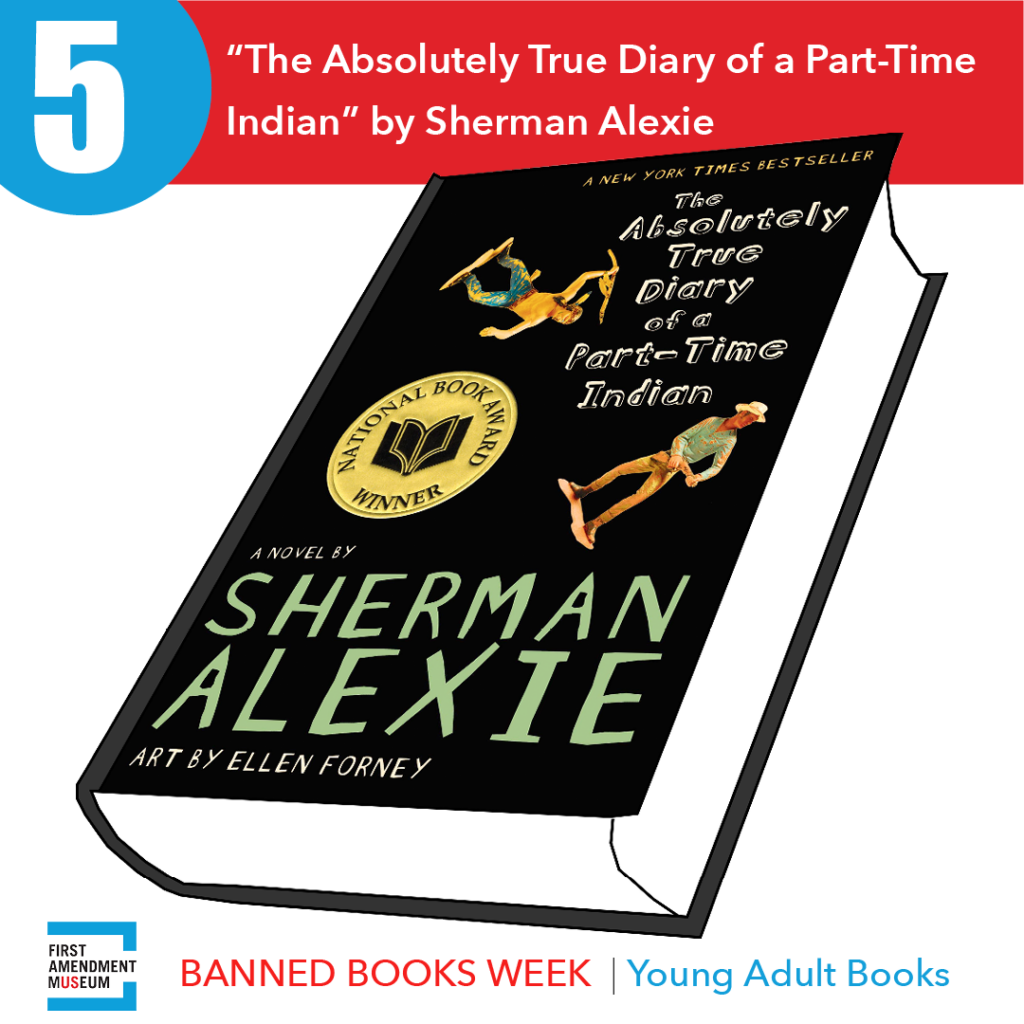
The Absolutely True Diary of a Part-Time Indian by Sherman Alexie
Based upon the real-life experiences of its author Sherman Alexie, the story is about a Native American teenager named Arnold Spirit, Jr., a 14-year-old amateur cartoonist who decides to leave the reservation where he grew up, and attend a nearly all-white public high school. Controversy centers on the book’s depiction of alcohol-use, poverty, bullying, violence, profanity, and homophobic slurs. Since publication in 2008, the book has consistently appeared on the annual list of frequently challenged books from 2010 to 2019 according to the American Library Association.
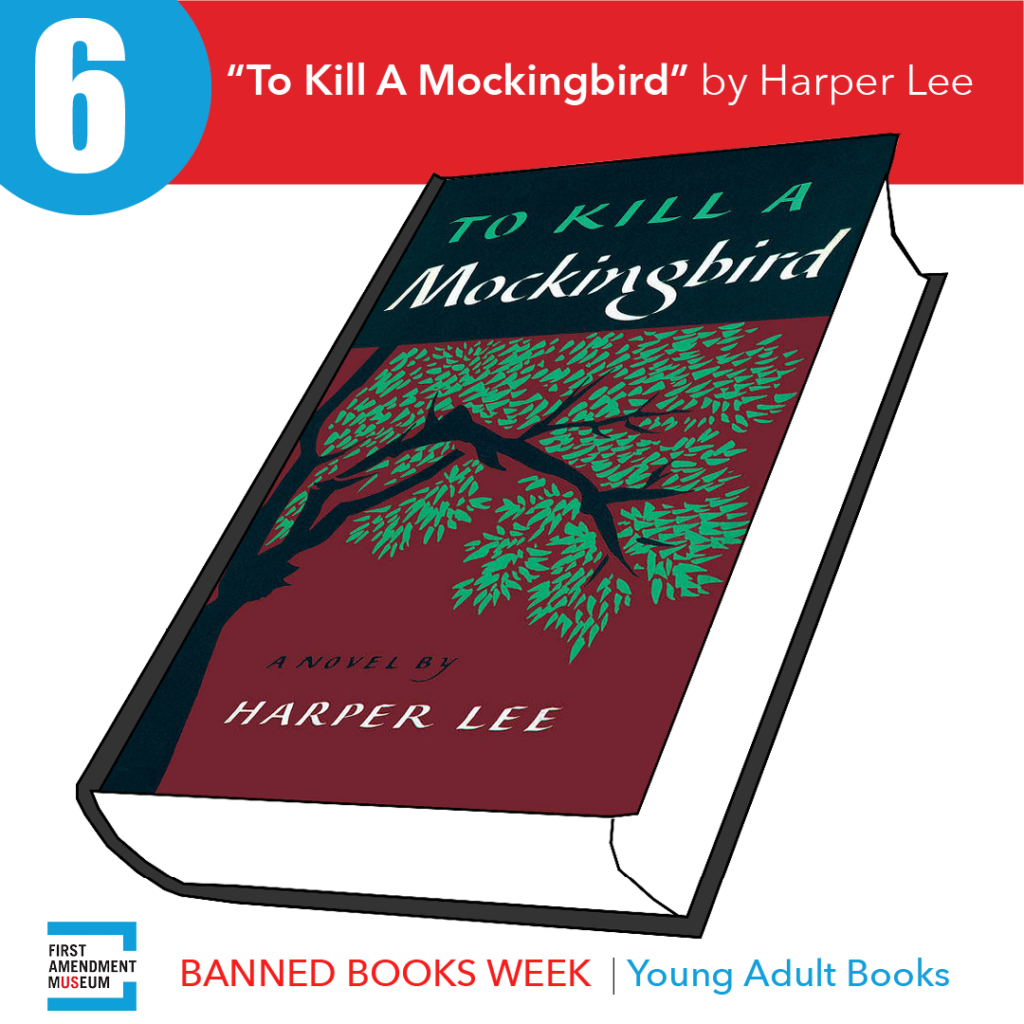
To Kill a Mockingbird by Harper Lee
This book needs no introduction to most Americans, as it has been part of high-school English curriculums for decades. Set in the Deep South of the 1930s, the coming-of-age story is about the protagonist Scout Finch, a young girl who grapples with both racial inequality and growing up. To Kill a Mockingbird is one of the most frequently challenged books in the United States due to its portrayal of rape, use of profanity, and inclusion of racial slurs. In 2017, the novel was removed from middle school classrooms in Biloxi, Mississippi following a complaint from a parent citing the use of racial slurs. After protests from free speech advocates, the novel was added back to a list of optional readings for students. In 2018, it was banned from schools in Duluth, Minnesota due to its use of racial slurs, where it remains banned to this day.
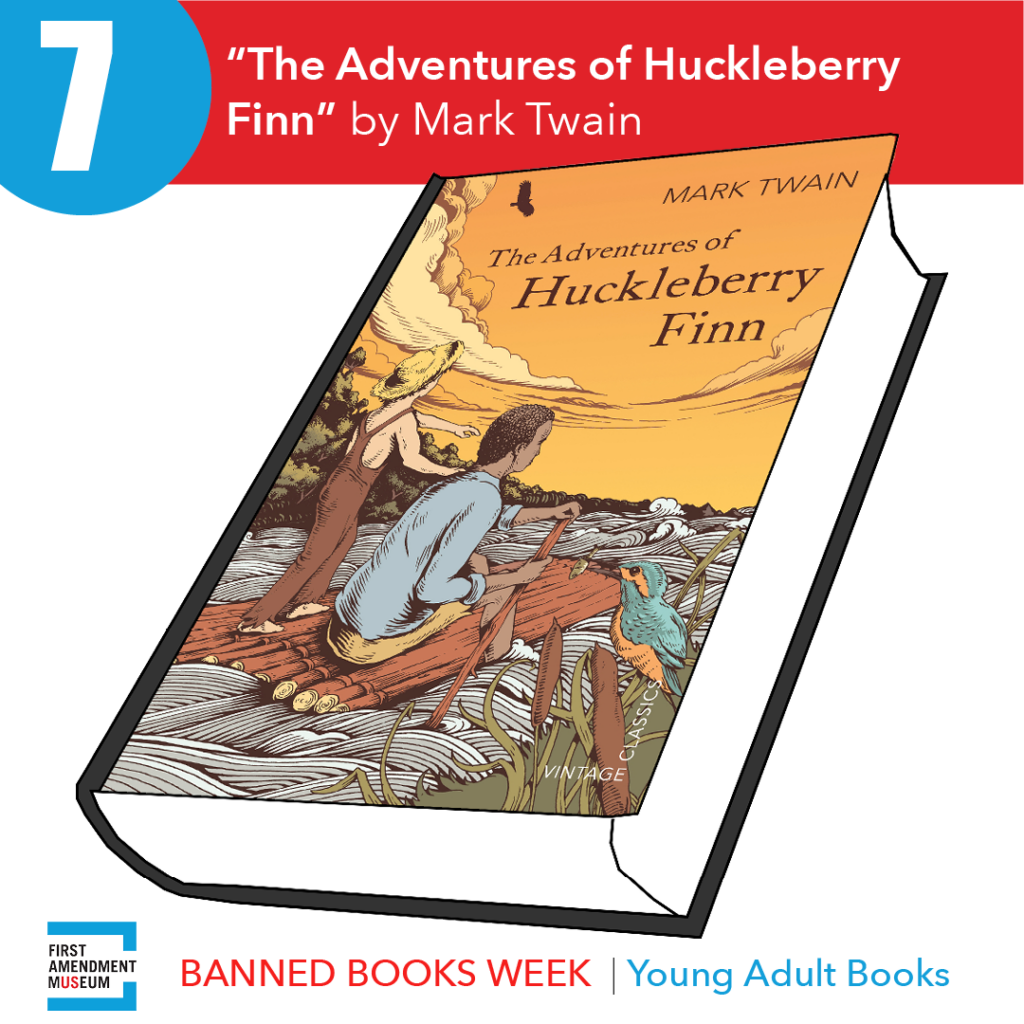
Adventures of Huckleberry Finn by Mark Twain
In 1885, The Adventures of Huckleberry Finn was banned for the first time just one month after its publication. “Not suitable for trash,” said the outraged librarian in Concord, Massachusetts who banned the book from the town’s library. Set in the Antebellum South, the story is a first-person narrative told by Huckleberry “Huck” Finn who teams up with an escaped enslaved man named Jim, as they float down the Mississippi towards differing versions of freedom. Nearly 140 years later, this novel has been challenged and banned numerous times by parents, school boards, publishers, and librarians, citing use of racial slurs and bigoted language. It is currently ranked number 14 on the top 100 Banned/Challenged books in America.
Check out our Banned Books article from 2020, which focused on Maine authors.

